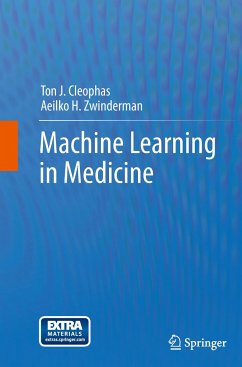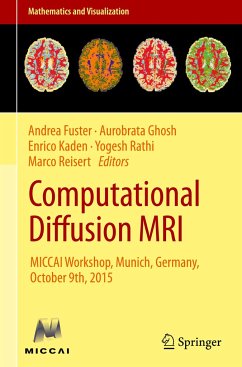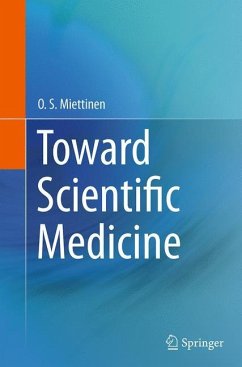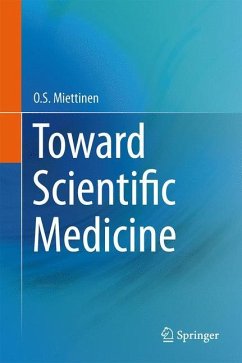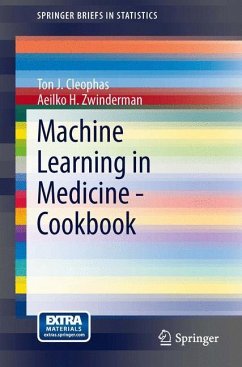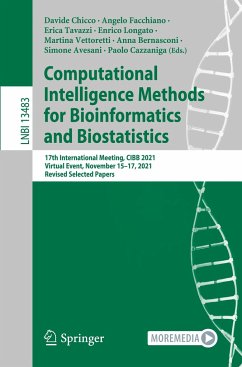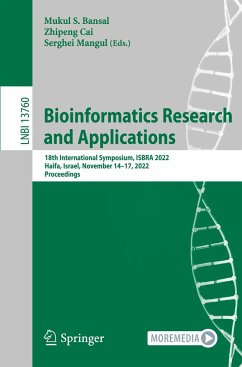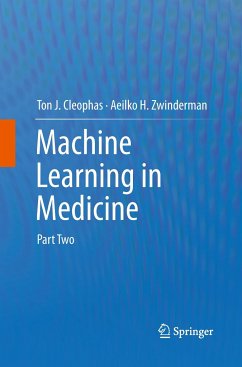
Machine Learning in Medicine
Part Two
Versandkostenfrei!
Versandfertig in 6-10 Tagen
38,99 €
inkl. MwSt.
Weitere Ausgaben:

PAYBACK Punkte
19 °P sammeln!
Machine learning is concerned with the analysis of large data and multiple variables. However, it is also often more sensitive than traditional statistical methods to analyze small data. The first volume reviewed subjects like optimal scaling, neural networks, factor analysis, partial least squares, discriminant analysis, canonical analysis, and fuzzy modeling. This second volume includes various clustering models, support vector machines, Bayesian networks, discrete wavelet analysis, genetic programming, association rule learning, anomaly detection, correspondence analysis, and other subjects...
Machine learning is concerned with the analysis of large data and multiple variables. However, it is also often more sensitive than traditional statistical methods to analyze small data. The first volume reviewed subjects like optimal scaling, neural networks, factor analysis, partial least squares, discriminant analysis, canonical analysis, and fuzzy modeling. This second volume includes various clustering models, support vector machines, Bayesian networks, discrete wavelet analysis, genetic programming, association rule learning, anomaly detection, correspondence analysis, and other subjects.Both the theoretical bases and the step by step analyses are described for the benefit of non-mathematical readers. Each chapter can be studied without the need to consult other chapters. Traditional statistical tests are, sometimes, priors to machine learning methods, and they are also, sometimes, used as contrast tests. To those wishing to obtain more knowledge of them, we recommend to additionally study (1) Statistics Applied to Clinical Studies 5th Edition 2012, (2) SPSS for Starters Part One and Two 2012, and (3) Statistical Analysis of Clinical Data on a Pocket Calculator Part One and Two 2012, written by the same authors, and edited by Springer, New York.





